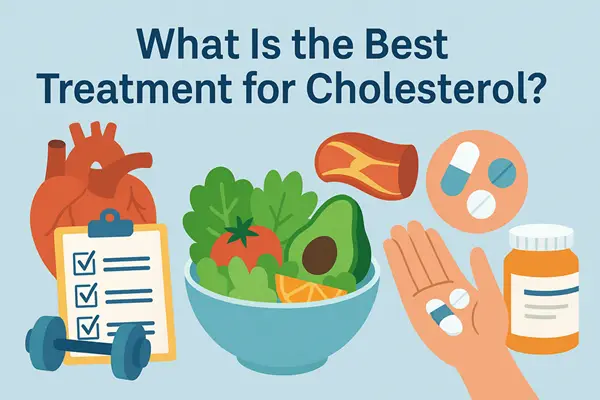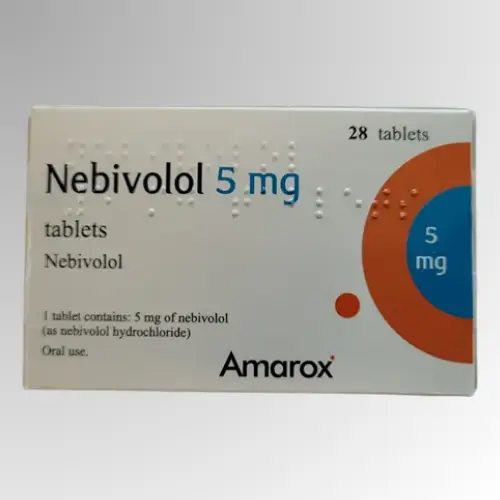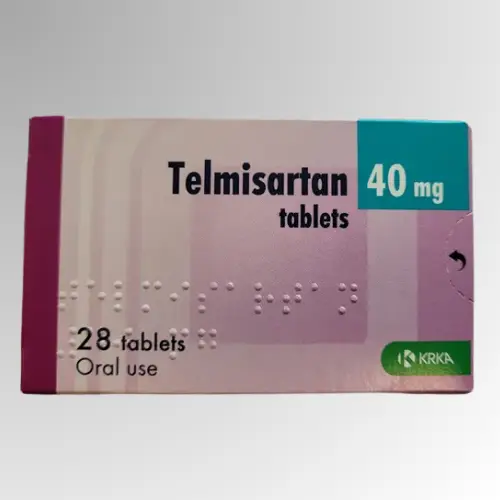Managing cholesterol is essential for heart health. High levels of LDL (bad cholesterol) can lead to a buildup of plaque in your arteries, increasing the risk of heart attack, stroke, and other cardiovascular issues. But with the right treatment plan, often a mix of lifestyle changes and medication, you can keep cholesterol levels under control and protect your long-term health.
So, what’s the best treatment for cholesterol? The answer depends on the individual, but here’s a breakdown of effective approaches and how specific medications can help.
Lifestyle comes first
Before turning to medication, doctors often recommend:
- Eating a heart-healthy diet: Focus on fibre-rich foods, whole grains, lean proteins, and healthy fats (like those from olive oil and fish).
- Exercising regularly: Just 30 minutes of moderate activity a day can help raise HDL (good cholesterol) and lower LDL.
- Quitting smoking and limiting alcohol
- Maintaining a healthy weight
However, when lifestyle changes alone aren’t enough, medication can provide the extra support needed to bring cholesterol to a safer range.
Medications that support cholesterol management
Several prescription medicines are commonly used to help manage cholesterol levels. Here’s a closer look at three options available through us and how they may support better heart health:
1. Rosuvastatin 40mg
What it does: Rosuvastatin is a powerful statin, a class of drugs designed to lower LDL cholesterol by reducing the liver’s production of cholesterol.
How it helps: Rosuvastatin not only lowers bad cholesterol but also helps raise HDL (good cholesterol). It’s commonly prescribed for individuals at high risk of cardiovascular disease or those who haven’t responded to milder statins.
Why it’s effective: It works quickly and is often well-tolerated, making it one of the go-to options for aggressive cholesterol reduction.
2. Nebivolol 5mg
What it does: Nebivolol is a beta-blocker primarily used to treat high blood pressure, but it also indirectly supports cholesterol management.
How it helps: By lowering blood pressure and improving blood vessel function, Nebivolol reduces the strain on the cardiovascular system. This can be particularly beneficial in patients who have both high blood pressure and cholesterol issues.
Added benefit: It has a vasodilating effect, which can help improve circulation and heart efficiency, crucial factors in cardiovascular health.
3. Telmisartan 40mg
What it does: Telmisartan is an angiotensin receptor blocker (ARB) used mainly to control blood pressure.
How it helps: While not a direct cholesterol-lowering drug, telmisartan improves vascular function and can help reduce inflammation. Studies have also shown it may improve lipid profiles and insulin sensitivity, offering added cardiovascular protection.
Ideal for: Patients managing both high cholesterol and high blood pressure, particularly those at risk for diabetes or metabolic syndrome.
What’s the best treatment plan?
There’s no one-size-fits-all solution. The best treatment for cholesterol depends on your current health status, cholesterol levels, and other risk factors like age, family history, and blood pressure. A combination of statins like rosuvastatin, blood pressure medications such as nebivolol or telmisartan, and a commitment to healthy living can go a long way in managing your cholesterol effectively.
Final thoughts
Left untreated, high cholesterol can quietly damage your heart over time. But with proactive care, starting with diet and exercise and supported by proven medications when needed, you can take control of your heart health. Explore cholesterol treatment options like Rosuvastatin, Nebivolol, and Telmisartan at TitanPharmax, and speak with your healthcare provider to create the plan that’s right for you.



